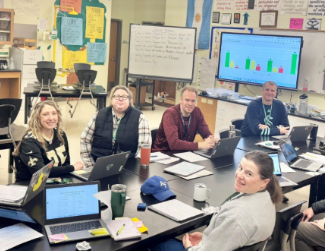Social moments can be filled with joy, connection, and warmth, but they can also bring a sense of pressure or unease. Whether it is meeting new people, engaging in lively gatherings, or simply sharing time with family and friends, the presence of others often stirs different emotions. Meditation, a practice that centers the mind and nurtures inner balance, can be a gentle way to bring calm to these moments. By approaching social situations with mindfulness and a grounded spirit, it becomes easier to enjoy conversations, listen deeply, and feel at ease in the company of others.
Meditation is often seen as a quiet practice done alone in a still space, yet its benefits extend far beyond those peaceful moments of solitude. The calm cultivated during meditation carries into daily interactions, making it easier to meet others with kindness and understanding. Social gatherings may sometimes spark nervousness, self-consciousness, or the pressure to perform. These feelings are natural, but they need not take over. Through meditation, one learns to anchor attention, soften inner dialogue, and embrace presence, which naturally reduces tension in shared experiences.
The first way meditation helps in social moments is by building self-awareness. Often, unease in social spaces arises from overthinking or imagining what others may be thinking. Meditation trains the mind to notice these thoughts without becoming tangled in them. When a person observes their own inner chatter with calm acceptance, it becomes easier to let go of unhelpful stories and instead focus on the real moment at hand. This shift invites a more genuine presence, which others often appreciate in conversation.
Another supportive effect of meditation is the cultivation of compassion, both toward oneself and others. Social calm is not only about quieting nerves but also about fostering a warm attitude. Practices such as loving-kindness meditation encourage sending goodwill first to oneself and then outward to others. Entering a social moment with this spirit can soften edges, making interactions feel less like challenges and more like opportunities for connection. Even in situations where disagreements or differing opinions arise, a meditative mindset provides space to respond with patience rather than quick reactivity.
Meditation also nurtures the quality of attentive listening. In many conversations, people may find themselves planning what to say next instead of truly hearing what is being shared. This tendency can create a subtle sense of disconnection. A regular meditation practice teaches how to rest in awareness, giving full attention without judgment or distraction. When this carries into social life, it creates deeper connections. Friends, family, and colleagues often feel valued when they are listened to with genuine care, and this naturally creates calmer, more fulfilling exchanges.
For those who experience nervousness in gatherings or meetings, simple breathing meditation can be especially helpful. Taking a few quiet breaths before entering a social space signals to the body and mind that it is safe to relax. The steady rhythm of the breath brings the nervous system into balance, reducing the rush of anxious energy. This small habit allows a person to enter conversations with a lighter, steadier presence. Even during a gathering, pausing briefly to notice the breath can restore calm if emotions start to rise.
Another useful practice is body-scan meditation. This involves gently bringing awareness to different parts of the body, noticing areas of tension and releasing them with each breath. Carrying this awareness into social settings can make it easier to stay relaxed physically, which in turn supports mental calmness. For example, noticing tightness in the shoulders during a conversation and consciously softening them can create a sense of ease that radiates into the interaction.
Meditation also strengthens resilience when faced with social challenges. Not every gathering or conversation flows smoothly, and misunderstandings sometimes happen. With a meditative foundation, it becomes easier to step back from immediate reactions and to respond thoughtfully instead. This does not mean suppressing feelings but rather allowing them to pass without letting them control behavior. Such steadiness helps maintain harmony in relationships and keeps social moments from becoming overwhelming.
Beyond individual benefits, meditation contributes to the overall atmosphere of social spaces. Calm is naturally felt by others. A person who enters a room with grounded presence can bring a sense of ease to the entire group. Just as stress can spread, so can calm. Through meditation, one does not only support personal peace but also creates an environment where others feel more comfortable and open.
It is also important to note that meditation need not be complicated to bring these benefits. Even a few minutes of mindful breathing before meeting others can make a difference. Over time, with consistent practice, calm becomes less of a fleeting state and more of a steady companion. Social moments, rather than being sources of worry, begin to feel like opportunities to share presence and kindness.
In addition, meditation nurtures authenticity. Many people feel pressured to present themselves in certain ways socially. This effort can create tension, as it requires constant self-monitoring. Meditation, however, teaches acceptance of oneself as one is. With greater self-acceptance comes the freedom to be genuine in interactions. Authentic presence often leads to more natural conversations and deeper bonds, which are far more fulfilling than trying to maintain a perfect image.
Meditation can also be adapted to the type of social setting. For intimate gatherings, carrying a sense of gratitude through meditation can enrich the warmth of connection. In larger groups or public events, grounding techniques, such as focusing attention on the feet or the breath, can keep the mind steady amid the busyness. In professional meetings, practicing a few moments of mindful awareness can help maintain clarity and confidence when speaking. Each setting offers an opportunity to apply meditation in subtle ways that bring calm.
In today’s world, where digital interactions are as common as face-to-face conversations, meditation supports calm in online social spaces as well. The practice of pausing before responding to a message, or taking a mindful breath before joining a video call, can prevent hurried reactions and create a more thoughtful presence. Even across screens, others sense when interactions are carried with patience and calm.
Ultimately, meditation does not remove the natural energy of social life but helps harmonize it. The laughter, excitement, and variety of human connection remain vibrant, while the inner steadiness gained from meditation ensures they do not become overwhelming. By blending mindfulness with everyday interactions, one discovers that calm and connection can coexist beautifully.
Social moments are essential parts of human life, and meditation offers a gentle tool to experience them with greater ease. Through self-awareness, compassion, attentive listening, and mindful presence, meditation transforms gatherings from sources of stress into spaces of comfort and joy. As calm grows within, it naturally extends outward, enriching not only personal experiences but also the shared lives of others. In this way, meditation becomes not just a solitary practice but a gift that continues to unfold in every social moment.






